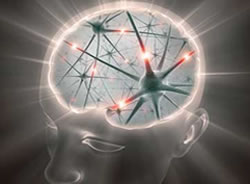Based on new evidence culled from their brain-scan studies on memory patients and meditators, their web-based survey of people's religious and spiritual experiences, and their analyses of adult drawings of God, Andrew and therapist Mark Robert Waldman, and their research team, have concluded that active and positive spiritual belief changes the human brain for the better. What's more, actual faith isn't always necessary: atheists who meditate on positive imagery can obtain similar neurological benefits. Written in an accessible style—with illustrations highlighting how spiritual experiences affect the mind—How God Changes Your Brain offers the following breakthrough discoveries:
• Not only do prayer and spiritual practice reduce stress and anxiety, but just 12 minutes of meditation per day may slow down the aging process.
• Contemplating a loving God rather than a punitive God reduces anxiety, depression, and stress, and increases feelings of security, compassion, and love.
• Fundamentalism, in and of itself, is benign and can be personally beneficial, but the anger and prejudice generated by extreme beliefs can permanently damage your brain.
• Intense prayer and meditation permanently change numerous structures and functions in the brain—altering your values and the way you perceive reality.
How God Changes Your Brain is both a revelatory work of modern science and a practical guide for readers to enhance their physical and emotional health and to avoid mental decline. Andrew and Mark explain the eight best ways to "exercise" your brain and guide readers through specific routines derived from a wide variety of Eastern and Western spiritual practices that improve personal awareness and empathy. They explain why yawning heightens consciousness and relaxation, and they teach "Compassionate Communication," a new mediation technique that builds intimacy with family and friends in less than 15 minutes of practice.




